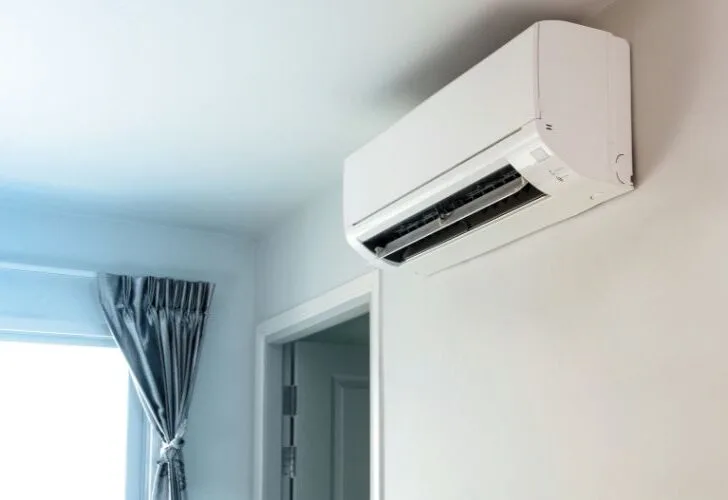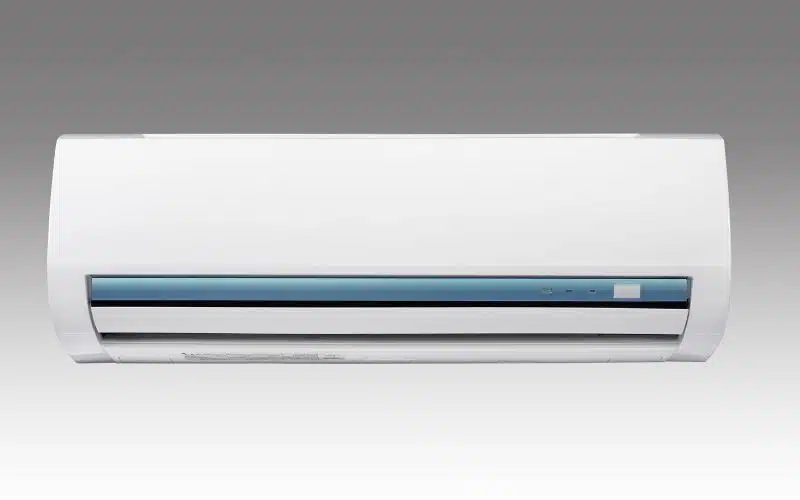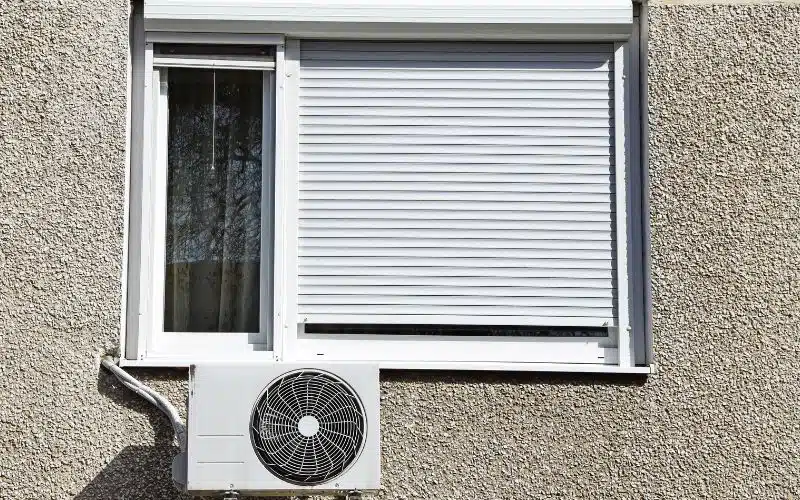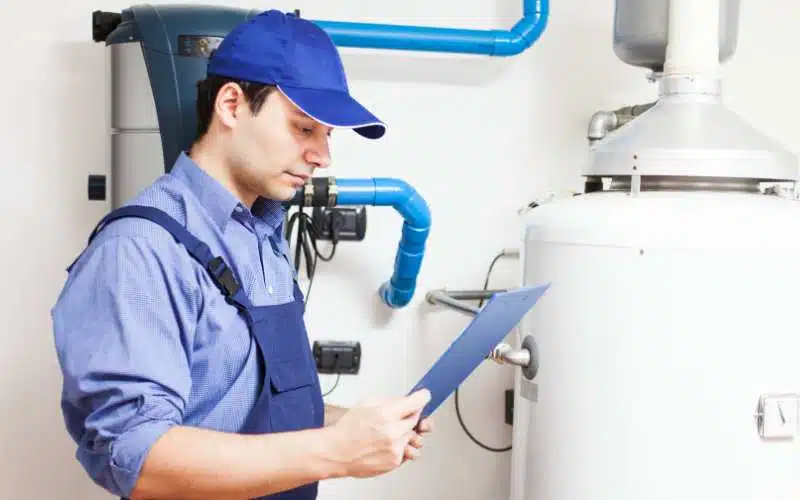Power bills pile up like no man’s business. But using electricity isn’t exactly something you can avoid, except you’re a caveman.
The best you can do is to limit your appliances. Get only the most important ones and turn them on only when you need to use them.
That’s both helpful to your bill and the environment. But, an air conditioner is essential to every home.
When buying an air conditioner, it’s natural to get curious about the power consumption. You want to be sure that you can handle its power demands.
But, of course, you’d have more than one appliance running at a time. You wouldn’t want power dwindling when you use a generator.
Unpaid bills on your table wouldn’t help either. Plus, there’s no collector’s reward for them.
The wattage for any 2.5-ton air conditioning unit depends on its SEER rating. Standard SEER ratings range from 14-25 SEER. They reflect the energy efficiency of an air conditioner; energy efficiency increases with increased SEER ratings. So, the average wattage for these air conditioners ranges from 1200 to 2143 watt-hours.
How Many Watts Does a 2.5-Ton Central Air Conditioner Use?

The simple answer is all air conditioners with a 2.5-ton rating don’t use the same amount of watt-hours.
The wattage for a 2.5-ton central air conditioner depends on its specific SEER rating.
The SEER rating reflects the energy efficiency of an air conditioner. Standard SEER ratings range from 14 to 25 SEER.
You may wonder, why the broad range in SEER ratings? Well, the SEER ratings lean on the choice of compressor in an air conditioner.
A high-quality compressor translates to less power consumption. But a compressor of lesser quality will consume more power.
You may also wonder, why not use the best compressors for all air conditioners?
Well, not everyone can afford to spend the same on appliances. That’s the reason for the variety of compressors; to meet the budgets of different people.
A 2.5-ton central air conditioner consumes an average of 1200 to 2143 watt-hours.
So, the power consumption will be 2069 to 3695 watt-hours for maximum wattage. For 14 and 25 SEER 2.5-ton central air conditioners, respectively.
The average wattage is only 58% of the maximum, hence the difference. The maximum wattage is what you’d expect an air conditioner to consume per hour.
But it could consume fewer watt-hours than the maximum wattage rating. Yet, an air conditioner’s power consumption never exceeds the maximum wattage rating.
Except there’s a fault with the unit somewhere. The exact wattage above also applies to split air conditioners.
The two main factors determining power consumption are the tonnage and SEER rating. The brand name, model of the air conditioner, or its type don’t determine its power consumption.
The table below shows the average and maximum wattage for 2.5-ton air conditioners from 14 SEER to 25 SEER.
| SEER Rating | Average Wattage (watt-hours) | Maximum Wattage (watt-hours) |
|---|---|---|
| 14 | 2143 | 3695 |
| 15 | 2000 | 3448 |
| 16 | 1875 | 3233 |
| 17 | 1765 | 3043 |
| 18 | 1667 | 2874 |
| 19 | 1579 | 2722 |
| 20 | 1500 | 2586 |
| 21 | 1429 | 2463 |
| 22 | 1364 | 2351 |
| 23 | 1304 | 2249 |
| 24 | 1250 | 2155 |
| 25 | 1200 | 2069 |
What Size of Generator Do I Need to Run a 2.5-Ton AC Unit?
The size of the generator you need to run a 2.5-ton air conditioning unit is down to its wattage. It is also down to the SEER rating.
So, we could recommend getting the biggest generator on the market. But that’s terrible advice. It’d cost so much to run (at a loss) if the air conditioner had a minimal power demand.
The solution is to use the wattage for your air conditioner as a guide to get a generator.
Generator ratings are usually in kilowatts. So you have to convert the maximum watt rating for your air conditioner to kilowatts.
For example, say you have a 2.5-ton air conditioning unit with a 2586 maximum watt rating. That’ll translate to 2.6 kilowatts. For more details, that air conditioner has a 20 SEER rating.
When you get the kilowatt rating, go for a generator that can accommodate that power demand.
But it would be best if you didn’t get a generator that matches the input you need. The air conditioner will not be the only thing in your home running on the generator.
Consider all the other appliances you have along with your air conditioner. Get a generator with a rating at least four times higher than the 2.5-ton air conditioner’s wattage.
That would ensure a proper power supply from the generator to all appliances in your home.
How Many Kilowatts Does a 2.5-Ton Air Conditioner Use?
The kilowatts rating of an air conditioner is simply a thousandth of its maximum wattage.
So you only have to divide the maximum wattage by 1000 to get it in kilowatts. It’s as easy as that! That is kilowatt-hours = (watt-hours)/1000.
Let’s look at a 15 SEER 2.5-ton air conditioning unit and get its wattage in kilowatts. The average wattage for the unit is 2000 watt-hours.
That means its maximum wattage rating is 3448 watt-hours. If we divide the maximum wattage by 1000, we get 3.448, which translates to 3.5 kilowatt-hours.
So, that’s the air conditioner’s power consumption in kilowatts. Getting the kilowatts rating is especially helpful when getting a generator.
Generators come in handy when you stay off the power grid or in cases of power failure. Without the kilowatt rating, you’ll be unsure what generator to get.
The table below shows the kilowatt rating of 2.5-ton air conditioning units from 14 SEER to 25 SEER.
| SEER Rating | Kilowatt Rating (kilowatt-hours) |
|---|---|
| 14 | 3.7 |
| 15 | 3.5 |
| 16 | 3.2 |
| 17 | 3.0 |
| 18 | 2.9 |
| 19 | 2.7 |
| 20 | 2.6 |
| 21 | 2.5 |
| 22 | 2.4 |
| 23 | 2.3 |
| 24 | 2.2 |
| 25 | 2.1 |
How Do I Calculate My Air Conditioner Wattage?
The Owner’s Manual usually carries the wattage for some air conditioners. So, getting the wattage for your unit that way is stress-free.
You wouldn’t have to break any sweat. But some air conditioners don’t carry the wattage on their Owner’s Manual. In this case, a formula for wattage comes in handy.
Recall that the two main factors determining wattage are the tonnage and SEER rating.
Those are the only two variables you’d need to calculate an air conditioner’s wattage. The tonnage reflects the capacity of the air conditioner.
Sometimes the ton rating for air conditioners comes in BTU cooling capacity. Don’t panic if you don’t see the capacity of your air conditioner in tonnage but BTU.
You can get the tonnage from the BTU reading. The tally is that 12,000 BTU = 1 ton, 18,000 BTU = 1.5 tons, and so on.
The next thing is the SEER rating. You can easily get your air conditioner’s SEER rating from the manual.
With the ton and SEER ratings, calculate the wattage of your unit with the formula below.
Average wattage = (tonnage × 12,000 BTU)/SEER rating
Let’s calculate the wattage for a 2.5-ton air conditioner with a 25 SEER rating. Using the formula that gives;
Average wattage = (2.5 × 12,000 BTU)/25
Average wattage = (30,000 BTU)/25
Average wattage = 1200 watt-hours
But the average wattage is only 58% of the maximum wattage. So, you have to divide the average wattage by 0.58 to get the maximum wattage.
Thus,
Maximum wattage = (Average wattage)/0.58
For the 25 SEER air conditioner, that’d mean;
Maximum wattage = (1200 watt-hours)/0.58
Maximum wattage= 2069 watt-hours
You can use the formula above for central air conditioners and split air conditioners.
Conclusion
The power consumption of a 2.5-ton air conditioner depends on its SEER rating. That reflects the type of compressor it carries.
Some air conditioners carry the watt rating in their literature. But you have to calculate it for others.
Also, knowing an air conditioner’s power consumption in kilowatts is helpful. It comes in handy when buying a generator.





